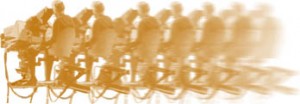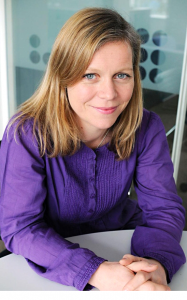follows on from School Dimmers
Nick Ware, Geoff Fletcher, John Howell (Hibou)
Cripes! If producers back in those days had had the mentality of their modern counterparts, they would have asked: "Do we really NEED dimmers?"
But now, of course it’s: "Do we really NEED sound recordists?" How happy they would have been in the days of silent movies!
Oh no! We’ve got to pay the pianist, does he HAVE to play all the way through? What are repeat fees? What? he composed the music? Can’t we find someone on the Continent to do it cheaper? He says he’s a member of WHAT Union?
Alber Barber
I’m not a sound expert but have been brought up with many of the BBC’s (Studios Film dept and OBs) and Thames TV’s excellent sound recordists.
This may help in future, being problems starting with producers without much knowledge:
I worked with a Producer who took all the times of day off the script and then asked why they were needed when I asked to have them put back.
Often producers come from being script editors and know little of what things are for and it’s up to us to educate them. Complaining to the converted is all very well but the answer is to write a paper (as I think I have mentioned before) on the reasons and practice of good sound recording. Not a book but a simple guide or comparison.
So …
1. Environment
-
type of mike
-
sound loops
-
type of shoot
2. Different mike profiles
-
Radio mikes
-
High quality (Cardiac etc)
3. Recording methods
-
on camera.
-
hand held mike
-
booms
-
separate mike for atmos
-
A B and side
4. Crewing
If you complain to the converted it just goes round and round. The BBCPA is trying to do something.
We can do something to stop the recent gaff as explained in the “DailyTelegraph”:
…The BBC is at a loss to explain why some of its dramas are struck by sound problems that render dialogue inaudible, the corporation’s television chief has admitted.
Charlotte Moore, the controller of the broadcaster’s television channels, said the organisation had found it “incredibly hard to get to the bottom” of problems with shows such as “Happy Valley”, the BBC Two drama, which was the subject of viewer complaints over mumbling actors.
Appearing at an event hosted by the Voice of the Listener and Viewer, Ms Moore said that her staff had looked in detail at the sound levels of Happy Valley, which stars Sarah Lancashire, but could not diagnose what had gone wrong.
Charlotte Moore, controller of the BBC’s television channels
She said: “Sound has been a big issue. After episode one we took everything back into the edit to try to really get that delineation and worked very hard to make it feel crisper and change those levels. It is something we take incredibly seriously.
“It is incredibly hard to get to the bottom of where things go wrong. It is often a bringing together of several circumstances, so that in those rare situations where there are sound issues it is quite hard for us to isolate that there is any one particular problem.
“It is often several different problems coming together. Sound is a very exact science…”
Dave Plowman
That second paragraph is true. There was considerable clothing rustle on later episodes of “Happy Valley”. Something you don’t normally hear broadcast. Tweak a mic that’s in a poor position and you bring up the rubbish as well as the voice.
Mike Jordan
Best is at the end of her speech! “…Sound is a very exact science…”
That’s why the BBC used to train people both at WN and on-site and employ good responsible staff (and producers/editors etc etc)
———
Sound perception
Tony Grant
Locally, we have a problem with a construction firm wishing to use our lane as a construction route (2016). I have been in correspondence regarding noise levels, and pointing out that the vast majority of their supposed facts and figures bear no relation to reality. I pointed out that 3dB represents a doubling/halving of loudness, and part of their reply I have copied below. I would appreciate any further comments from those who know more than me, especially in respect of their 10dB assertion.
The firm’s statement in reply to me reads as follows:
“… However the human perception of loudness is different. Extensive psychoacoustic research during the last century showed that a doubling of perceived loudness occurs with an increase of around 10 dB and that the smallest perceptible change is around 3 dB.
This conclusion forms one of the points for noise assessment and is referenced in many guidance documents including Planning Policy Wales, Technical Advice Note (Wales) 11, Noise, which states
‘A change of 3 dB(A) is the minimum perceptible under normal conditions’.
The published guidance and planning framework for acoustics require that professional judgement be applied to interpretation of the acoustic context of a given scenario in a given area. This judgement is based on the accumulated experience of the acoustics profession shared through technical papers and published guidance and individual experience of similar projects. The consultants within AECOM Acoustics take an active role in the development of this shared knowledge through contributions to various working groups, conferences and standards committees. AECOM Acoustic takes an active role in Institute of Acoustics (IOA) and Association of Noise Consultants (ANC) meetings, conferences and groups and has attended meetings and consultation responses on revised standards such as BS 4142, BS 8233 and the new planning guidance (ProPG Planning and noise). AECOM Acoustic group have regular knowledge sharing discussions and a working group in relation to EIA. Members of the AECOM Acoustics team are members of various committees and working groups…”
Dave Plowman
If I recall correctly, it is generally accepted if you gave the man on the Clapham Borisbus a volume control and asked him to wind up the level to twice as loud, it would measure at about 10 dB of a voltage gain.
Keith Wicks
The firm is correct in saying that a doubling of perceived loudness occurs with an increase of around 10 dB (assuming that they mean dBA in sound pressure level (SPL)). I don’t know about the smallest perceptible change under normal conditions, and I don’t know what normal conditions are. Normal noisy?
This subject of psychoacoustics is complex, and there are other factors to take into account besides SPL. The frequency and duration of a sound affect its perceived loudness, as does the loudness of any immediately preceding sound. And absolute measurements may be weighted by filters. The A filter, for example, mimics the human ear (which is less sensitive at low frequencies) and cuts SPL readings below 1 kHz (-40 dB at 30 Hz). Decibel readings taken using this filter may be written as dB(A), dBa or dBA.
This web page has useful information including a table of typical SPLs (in dBA):
http://trace.wisc.edu/docs/2004-About-dB/




